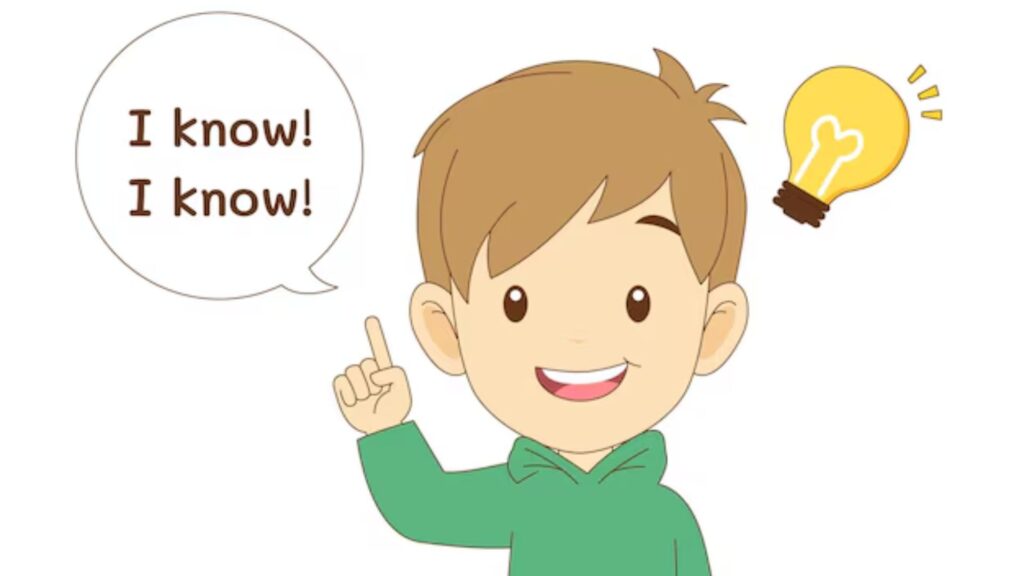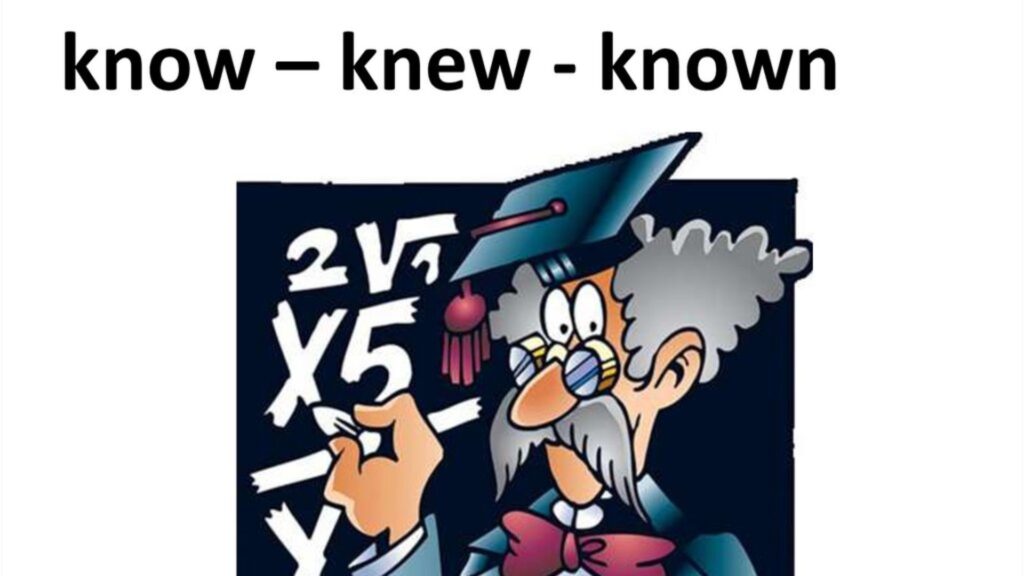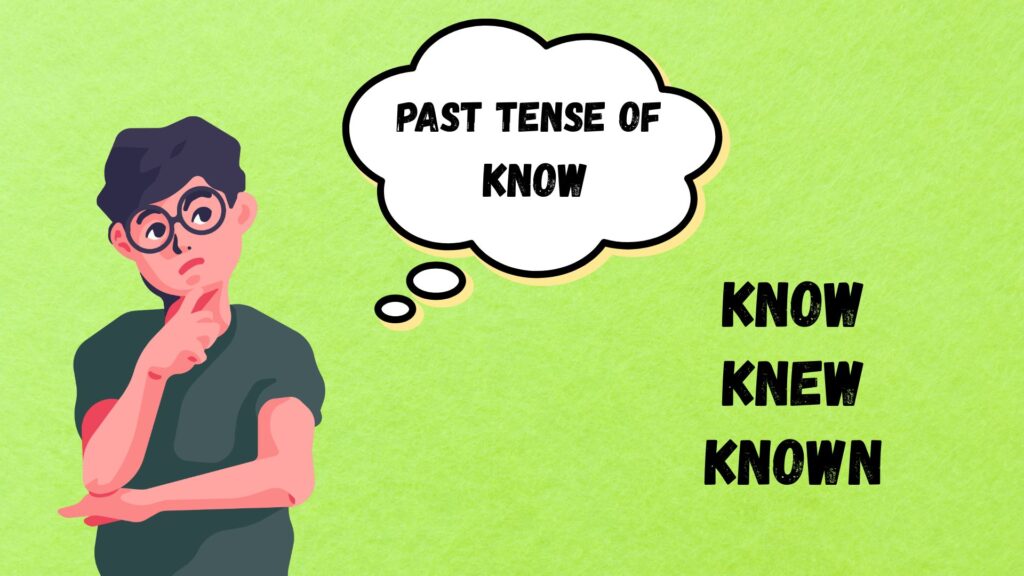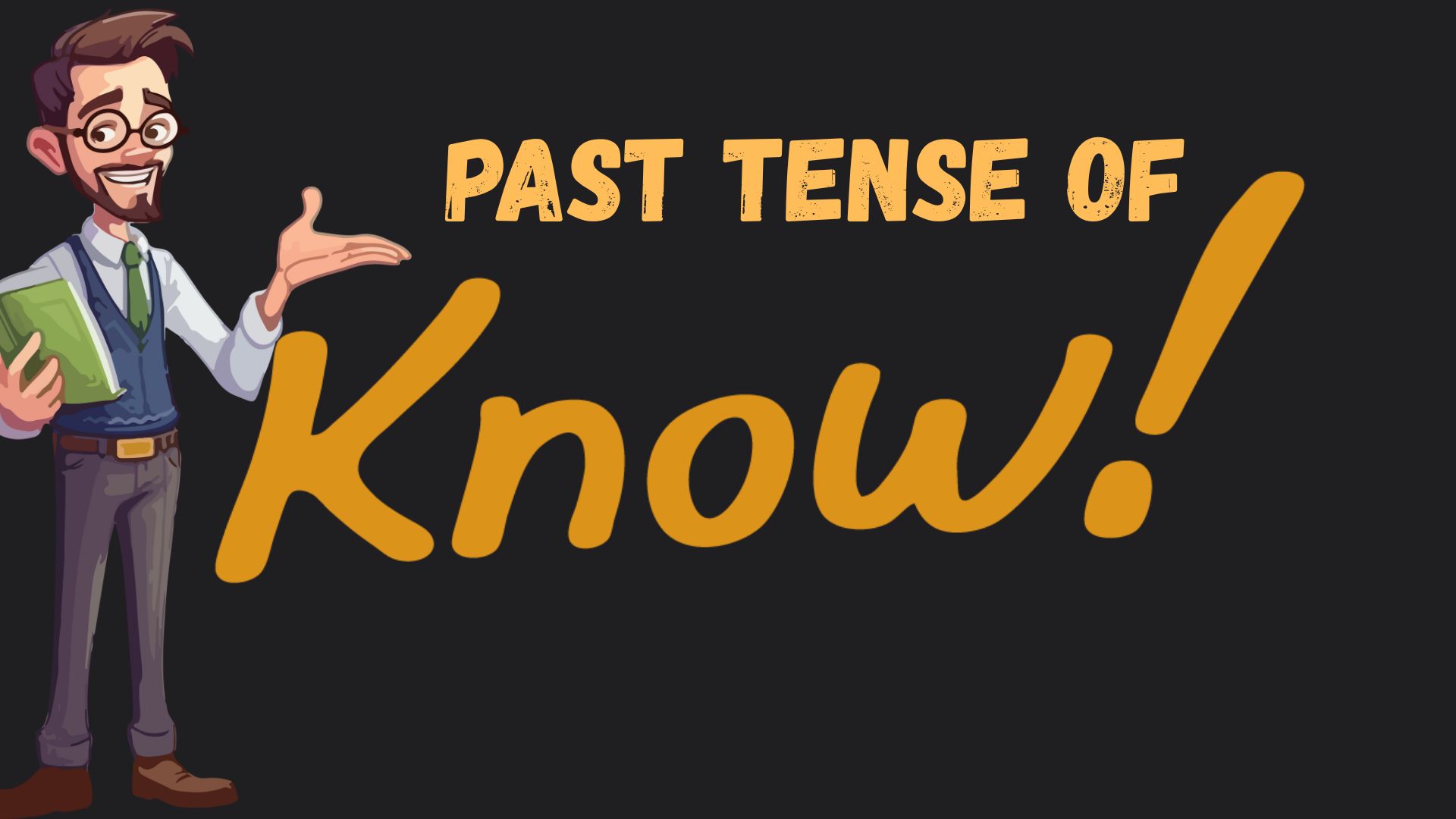If you’ve ever paused mid-sentence wondering whether to say “I knew that” or “I have known that”, you’re not alone. The English verb “to know” can be a bit slippery when you dive into its different forms. And because it’s an irregular verb, there’s no simple “add -ed” trick here.
So what’s the deal with know, knew, known? Which one is the correct past tense? When do you use each one?
Let’s break it down in a clear, conversational way then we’ll look at some real-world scenarios (like emails or texts) where these forms pop up.
Understanding the Verb “To Know”

Before jumping into examples, here’s a quick look at the basic verb conjugation of “to know”:
| Verb Form | Example |
|---|---|
| Base form | know |
| Simple past | knew |
| Past participle | known |
| Present participle | knowing |
| Third-person singular | knows |
Know is a classic irregular verb, meaning it doesn’t follow the standard grammar rules for conjugation.
“Knew” Is the Simple Past Tense
The correct past tense of “know” is “knew”.
Knew is used to talk about something you were aware of in the past. It refers to a completed action or fact usually tied to a specific time.
✔ Example Sentences with “Knew”
- I knew she was hiding something.
- They knew the answer right away.
- We knew about the party last weekend.
📧 Scenario: Email Using “Knew”
Subject: Re: Your Concerns About the Contract
Hi Jason,
I just wanted to say I knew there were some sections of the contract you might find confusing. I’m working with legal to simplify the wording.
Thanks for pointing it out.
Best,
Megan
In this context, Megan is referring to something she already realized in the past. That’s why “knew” fits.
“Known” Is the Past Participle
Here’s where it gets trickier. Known is not the simple past. It’s the past participle, and it’s used with helping (auxiliary) verbs like have, has, or had in perfect tenses.
Use known when you’re talking about:
- An action that happened at an unspecified time in the past
- Something that started in the past and still applies
- Describing experience or familiarity over time
✔ Example Sentences with “Known”
- I have known her for years.
- They had known about the issue before it escalated.
- He has known this all along.
📧 Scenario: Work Email Using “Known”
Subject: Performance Review Input
Hey Camille,
I’ve known Alex for over three years now, and I can confidently say he’s one of the most reliable engineers we’ve had.
Let me know if you need more feedback.
Cheers,
Derek
Derek’s sentence reflects experience over a period of time which is exactly when “known” is appropriate.
“Know” Is the Present Tense
Let’s not forget the present tense form: know. You use it when you’re talking about current awareness, facts, or beliefs.
✔ Example Sentences with “Know”
- I know the answer.
- She knows what’s going on.
- We know that honesty matters.
🧠 Bonus Tip: Pronunciation Matters
Knew is pronounced exactly like “new.” It’s easy to confuse when you’re listening especially for English language learners. But in writing, context will always make the difference.
What’s the Difference Between “Knew” and “Known”?

Let’s clear this up using a comparison table:
| Tense Type | Verb Form | Example | Explanation |
|---|---|---|---|
| Simple Past | knew | I knew the answer. | Completed past action |
| Present Perfect | known | I have known her for years. | Ongoing relevance from past to now |
| Past Perfect | known | He had known before we told him. | Something that occurred before another past action |
Summary:
- Use knew for something that happened and ended in the past.
- Use known with a helper verb to talk about duration, experience, or earlier past events.
📝 Quick Quiz: True or False?
Let’s test your understanding of verb usage with this mini grammar quiz:
- I have knew about that for years. → ❌
- She knew it was going to rain. → ✅
- They have known each other since college. → ✅
- I knew her since childhood. → ❌
- He has knew the rules all along. → ❌
Correct Answers: 2, 3
If you got those right, you’re already mastering tense identification!
🎯 Common Grammar Mistakes
Here are some mistakes learners often make when using “know,” “knew,” and “known”:
❌ Mistake #1: Mixing up “knew” and “known”
Wrong: I have knew the answer all along.
Right: I have known the answer all along.
❌ Mistake #2: Using “know” in past contexts
Wrong: Yesterday, I know the answer.
Right: Yesterday, I knew the answer.
These mix-ups are common in language education, especially for beginners. English grammar can be messy, especially with irregular verbs in English, but patterns like this are learnable.
🎓 Pro Tip for English Language Learners
If you’re studying for a language quiz, worksheet, or just trying to avoid common grammar mistakes, remember:
- “Knew” = past moment
- “Known” = used with have/has/had
- “Know” = now
Think of them like stages of knowledge:
| Stage | Form |
|---|---|
| Ongoing awareness | know |
| Past realization | knew |
| Accumulated experience | known |
✨ Fun Analogy to Remember It

Imagine “know” is like turning on a light.
- When the light is on right now, you know.
- If the light was on yesterday, you knew.
- If you’ve ever had the light on, you’ve known what light feels like.
This kind of mental image helps make verb usage stick more naturally.
🧩 Practice Makes Perfect: Try This Worksheet
Here’s a mini grammar practice exercise you can try. Fill in the blanks with the correct form:
- I ______ the answer before you said it.
- She has ______ about this for years.
- We ______ what would happen next.
- He had ______ her since childhood.
- Do you ______ what time it is?
Answers:
- knew
- known
- knew
- known
- know
Final Thoughts
Understanding the difference between know, knew, and known is about more than just memorizing terms. It’s about using the right form to match time, context, and clarity. Whether you’re writing an email, having a conversation, or completing a verb tense quiz, the right choice makes your English sound polished and precise.
So the next time you pause mid-sentence, remember:
- Know = present
- Knew = past
- Known = past participle (with have/has/had)
Now you know better and that’s half the battle.

